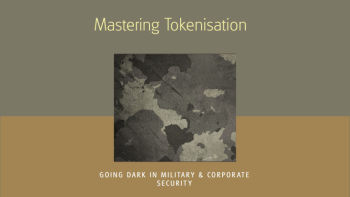GEOPOLITICAL NEWS: Afghanistan: What now to avoid disaster?
Posted By PRChannel Team – Gibraltar
www.GEOPoliticalMatters.com
Afghanistan: What now to avoid disaster?
New Atlanticist by James Cunningham, Hugo Llorens, Ronald E. Neumann, Richard Olson, and Earl Anthony Wayne. Related Experts: James B. Cunningham, Earl Anthony Wayne
Bitter fighting lies ahead in Afghanistan, with the coming withdrawal of all US and NATO forces from the country. The Afghan National Defense and Security Forces (ANDSF) will go from doing most of the fighting to all of it, as well as all of the dying, which they have already been doing in recent months.
But as US President Joe Biden has said, the United States still has interests worth supporting in the country, and there are actions the coalition must take rapidly to improve the chances that a twenty-year struggle will not end in complete defeat for the laudable aims the United States and its allies have pursued.
The decision to withdraw is not one some of us favored, but that decision is made. Time spent debating its wisdom is time better employed deciding what to do now.
The coming test of US diplomacy
The decision sets up a major test for US diplomacy in Afghanistan, in the region, and with international partners and rivals. Demonstrating that Biden’s commitment is serious will require immediate action.
There is substantial agreement on the interests that the United States and its international partners retain in the country. First, potential terrorist threats need to be addressed effectively. Second, values the United States and its partners espoused and which a substantial number of Afghans have embraced—including women’s rights, freedoms of speech and the press, free and fair elections, and the constitutional order—are still important. Biden, US Secretary of State Antony Blinken and congressional leaders in Washington have highlighted their commitment to these values and promised continued assistance in upholding them in Afghanistan.
It is still possible to support these interests. But time is short and there are many doubts in Afghanistan, among our partners, and in the region about the United States’ ability to follow through.
The Biden administration needs a clear and effective focus on implementing all elements of a coherent policy to “stay in the game,” in Blinken’s words. This is now the Biden administration’s responsibility to get right.
The United States currently has numerous working groups addressing the details of implementing the president’s policy. Major issues include how to maintain an effective counterterror mission without forces in Afghanistan, how to support the US embassy with no military nearby, how to continue to support the Afghan security forces, how to keep delivering vital economic and humanitarian assistance to the country, how to coordinate with other governments in doing so, and what can be done diplomatically to advance the cause of peace with Afghans, neighbors, and international partners, among others. The US government also needs to agree on important details about continued US funding to Afghanistan and how to monitor those expenditures to prevent fraud.
There is a natural tendency to want to finish developing these plans before making more announcements. But these policy reviews will take time. In the interim, millions of Afghans are very worried—and Afghan and regional actors are gauging their reactions. Waiting to finalize and put flesh on these plans would be a major mistake, because Afghanistan will soon face crucial trials.
The view from Afghanistan
The Taliban have been emboldened by the United States’ withdrawal, and major Taliban attacks are already underway. There are indications that the Taliban will soon move to capture one or several provincial cities. There are no clear signals that any of the desperate attempts to find a rapid route to peace will succeed. Taliban statements make clear that they believe they have won a major victory over the United States and that they can soon achieve victory over Afghan forces. The Taliban are combining these military efforts with intensive initiatives to make deals with individual Afghan power brokers in Kabul.
If the ANDSF resists the early Taliban onslaughts, that will buy time and boost Afghan self-confidence. The result could be a long war. If the Taliban recognize that there is no easy path to victory, they might reconsider negotiations.
But if Afghan forces lose these battles—if multiple cities fall—the game may be over, and a rapid unraveling of the Afghan army and the Kabul leadership becomes a possibility.
Afghan friends in Kabul tell us most everything is in doubt: What are US statements worth? What does the United States plan to do? Under these conditions, many Afghan political leaders may be more interested in seeking out a safe place, looking to make a quick profit, or finding a position in the potential new order. There seems to be endless scheming to see if the United States will back a particular person or group to take power in some transitional government.
This lack of clarity about where power presently resides undercuts the morale of security forces and the millions of younger Afghans who want to maintain a freer and more open Afghanistan. For whom and for what are they to risk their lives?
Amid this doubt and uncertainty, Afghan friends tell us that more and more educated Afghans are considering leaving the country, including people they never believed would depart. Afghanistan is on the verge of a major brain drain that will further sap the government of its ability to govern. Such an outcome is not in the interest of the United States, which must do what it can to strengthen the will of Afghans to remain and fight. How can this be done?
A plan for the United States to pass its diplomatic test
In the past, the US government has counseled Afghan President Ashraf Ghani to broaden his government and advised others to unify with him. This is the wrong advice now, at least if it would mean further weakening the government’s authority or perceived legitimacy. Afghan politicians will each demand a price for support: ministries, governorships, and police commands. Unity under such conditions will not improve governance.
The United States and its partners need to make clear their support for Afghanistan’s constitutional order. If that order falls apart, and the only agreed-upon mechanism for taking power in the country is removed, the slide into civil war will be rapid. Support for constitutional order necessarily includes support for the Afghan president, while recognizing the important roles of other actors including Abdullah Abdullah, who leads the High Council for National Reconciliation. The constitutional order must be protected if there is any hope for peace and stability in Afghanistan. The Kabul elite need to realize this and support that order. If new elections can come out of a peace agreement, Ghani has offered to step down early and not run in such an election. Holding him at arm’s length or weakening him further in the hope that the Taliban will join the current or future negotiations or agree to a ceasefire would be a mistake.
Learn More/…









